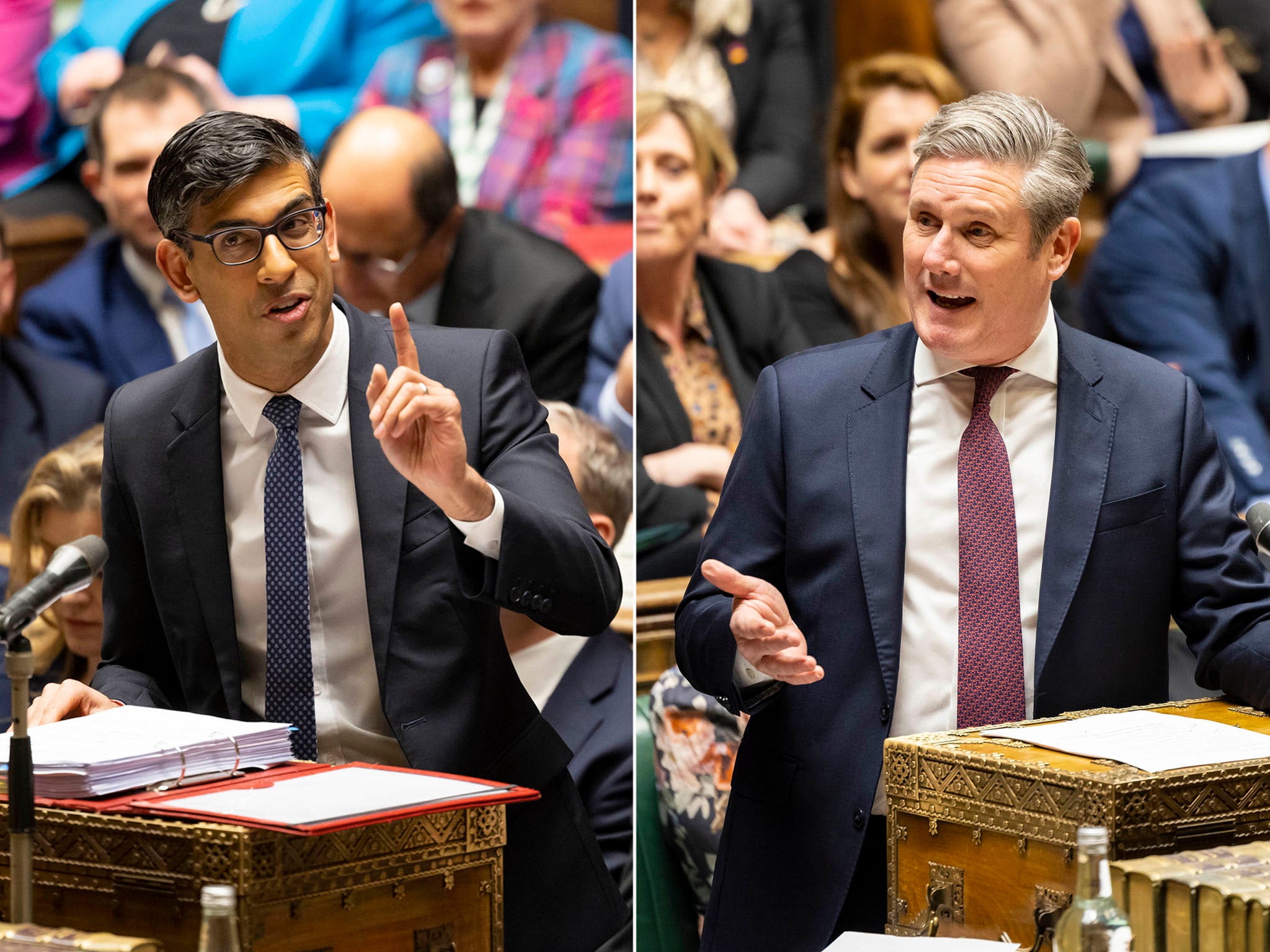We’ve set a trap for ourselves on Sunak and Starmer’s tax returns
Political outrage over earnings has not left us any wiser says Chris Blackhurst


For years, the Daily Mail and others have propounded the theory that the highest paid public employee in the country should be the prime minister.
They’ve gone further and used the salary – currently £164,951 – as the yardstick by which even private sector wages are measured. So we read that someone earns five times what the prime minister makes, which is another way of saying they’re greedy and paid too much.
It’s an imperfect comparison of course, because there are no market forces determining pay levels for prime ministers as there are with even many civil service as well as commercial jobs. It’s also irrelevant. Boris Johnson has picked up more than £5m in speaking fees in the six months since he moved out of No 10. Sure, it might have been a struggle for him and his family financially when he was running the country, but presumably not any more.
Stand back, though, for a new moral benchmark, which is the amount our senior politicians pay in tax. Rishi Sunak chose to slip out details of his tax return on the day his predecessor was occupying Westminster’s attention by appearing before the Commons Privileges Committee, accused of misleading Parliament.
They showed he’d made nearly £5m over the past three years, thanks mostly to gains from his US investment fund. From that, Sunak paid just over £1m in UK tax, giving him an effective tax rate of 22%.
Next, it was the turn of Starmer to declare how much he paid. The Labour leader earned £211,620 in the last financial year, on which he paid tax of £67,033, making his effective tax rate nearly 10 percentage points higher, at 31.67%.
So, a gold star for Starmer. But Sunak paid for much more of the public service than Starmer did. His rate was lower but he paid considerably more.
It would be rare to find anyone who ignored the loopholes and devices on offer and paid a flat rate of tax. By coming in with the lower, 22% figure, Sunak was only doing what countless individuals, including media executives, do as a matter of course. We have an entire industry devoted to helping people minimise their tax returns.
The gap between avoidance and evasion is enormous. Sunak was not pursuing the latter. And the get-outs he is able to take advantage of were installed by the government in the first place.
One reason Sunak’s rate is so low is that he paid less than a quarter of his gains in tax. He saved more than £300,000 in tax because the top rate of capital gains tax was cut by the Conservative government in 2016. Sunak voted for the reduction and spoke in the debate, arguing the cut was good for business and would encourage investment - without saying he stood to benefit from it.
Cue outrage from Labour and campaigning groups. But it’s not so simple - it never is where such matters are concerned. Britain’s capital gains tax rates were the same as those for income tax until 1998. Then they were slashed by the then Chancellor – Gordon Brown, who when I last looked was not an out or closet Tory.
Brown’s reasoning was that he wanted to incentivise enterprise and drive capital investment. Ten years later, his successor Alistair Darling, also Labour, put them back up, introducing a top rate of 28%. Darling was motivated by having to deal with the fallout from the 2007-08 banking crisis. Public finances were shot to bits, thanks to having to bail out greedy bankers. Darling had to claw back the money from wherever he could find, and the last thing he wanted to do was continue to reward rich bankers.
Then, it was the turn of the Tories in 2016 to pull them back again. Speaking in the debate ahead of the move, Sunak said: “I am confident that reducing capital gains tax rates - together with a brand new 10% rate for long-term investments in private businesses - will unlock millions in much-needed funding. From speaking with investors this past week, it is clear that those policies have cut through and generated a fresh wave of enthusiasm for investing in British companies.”
That would be fine in regard to Sunak’s personal saving and his tax rate being lower than Starmer’s - except the gains he made were on investments made in the US and not in the UK. Despite what he said, Sunak seems to have little enthusiasm for investing in British companies.
Starmer’s gloating was tempered by the disclosure that he has a nice tax perk of his own. As Director of Public Prosecutions he was awarded a bespoke pension that would have meant he did not have to pay tax on contributions above the lifetime tax-free limit – an arrangement that had also been made for DPPs before him, including Labour ones.
The Tories scrapped the lifetime limit in Jeremy Hunt’s recent budget. Labour has said it will restore the limit.
Starmer was accused of hypocrisy since his DPP pension would not be affected. He’s now said he will give up the carve-out if he becomes prime minister. “I’m very happy to be - and will be - in the same position as everybody else in this country.”
Except he won’t be. He will be earning the prime minister’s salary, which puts him at the top of the tree.
Truly, we’ve created a minefield.
Join our commenting forum
Join thought-provoking conversations, follow other Independent readers and see their replies
Comments
Bookmark popover
Removed from bookmarks